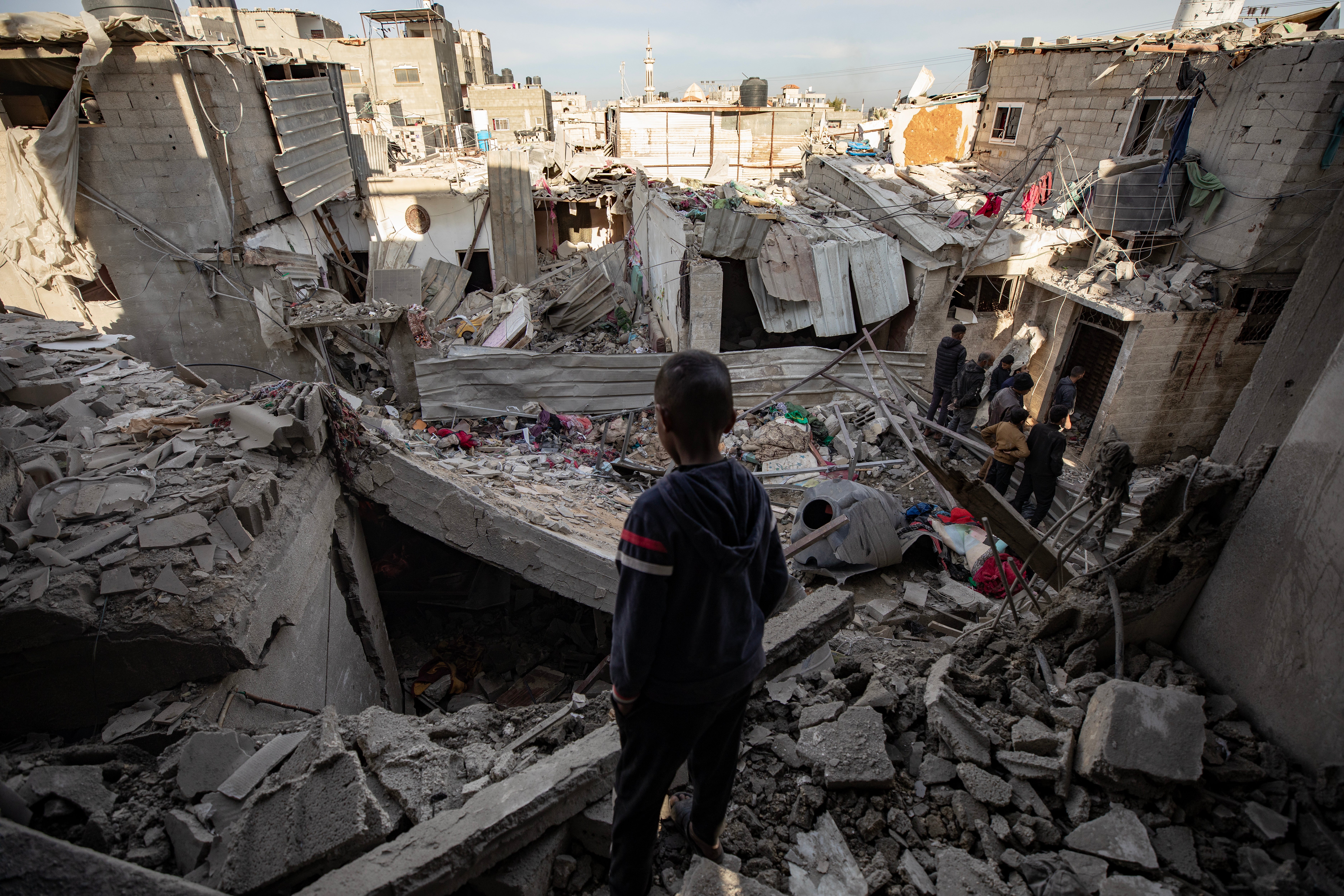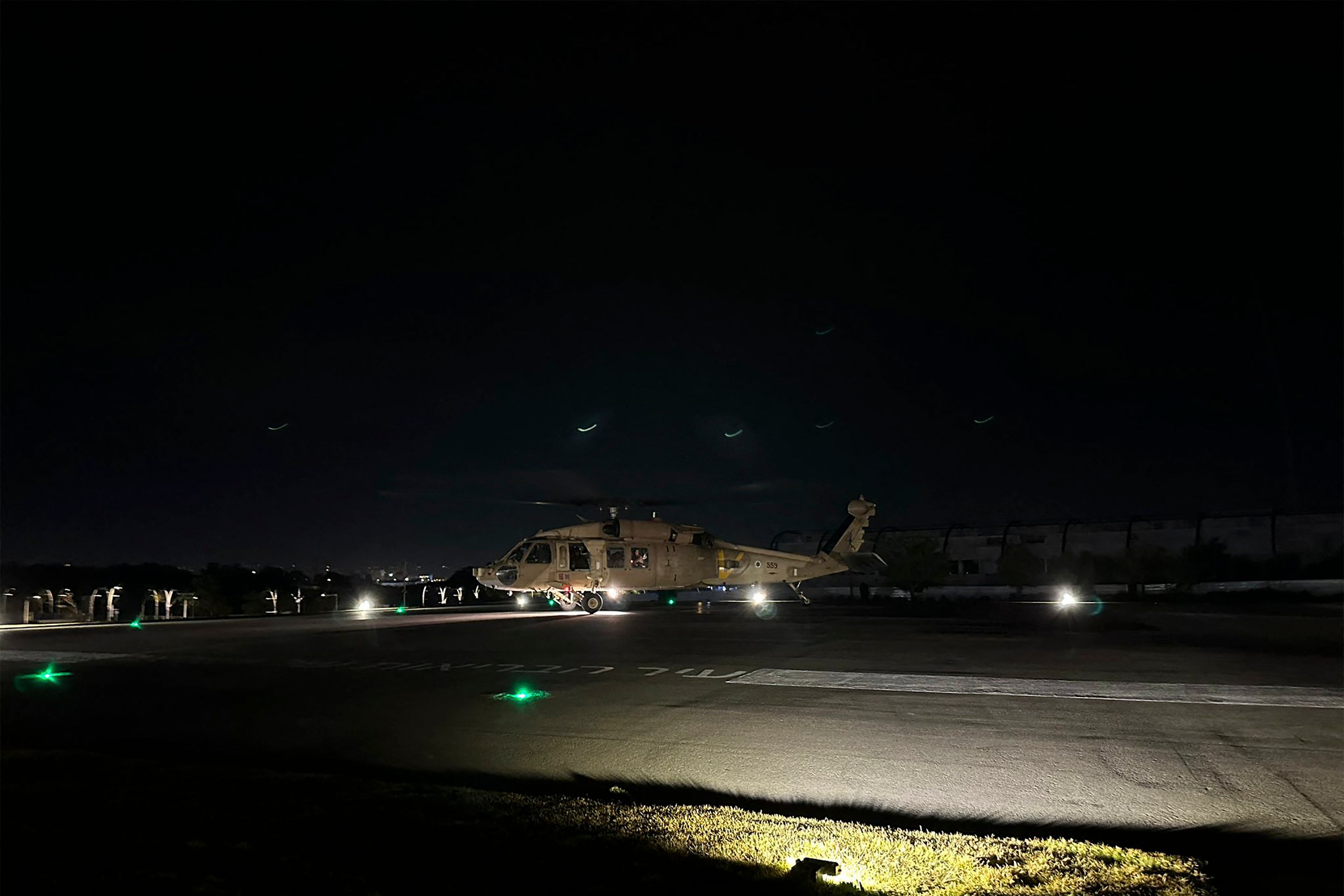Why Israel’s assault on Rafah could mean the worst is yet to come: ‘We have nowhere left to go’
The bombardment killed at least 67 Palestinians, including women and children, says health ministry in Gaza

Your support helps us to tell the story
From reproductive rights to climate change to Big Tech, The Independent is on the ground when the story is developing. Whether it's investigating the financials of Elon Musk's pro-Trump PAC or producing our latest documentary, 'The A Word', which shines a light on the American women fighting for reproductive rights, we know how important it is to parse out the facts from the messaging.
At such a critical moment in US history, we need reporters on the ground. Your donation allows us to keep sending journalists to speak to both sides of the story.
The Independent is trusted by Americans across the entire political spectrum. And unlike many other quality news outlets, we choose not to lock Americans out of our reporting and analysis with paywalls. We believe quality journalism should be available to everyone, paid for by those who can afford it.
Your support makes all the difference.In al-Najjar hospital in Gaza’s border city of Rafah, the shredded remains of body parts arrived in bags with numbers scribbled on the top. Written by the first responders who had just pulled the limbs out of the rubble, the numbers signified the estimated number of people that they thought might be inside each bag.
The mangled pieces of human flesh are so damaged “it was impossible to properly identify them”, said Amjed*, a resident of the city who visited the hospital on Monday. He shuttled from hospital to hospital, from bomb site to bomb site, trying to sort the missing from the dead in the wake of Israel’s ferocious overnight assault on the city.
“The first bodies to arrive at the hospitals were all children and women. There were so many bodies lining the ground,” he told The Independent.
“The scene was catastrophic. I saw torn parts of children.”
Other children were ferried to the hospitals in civilian cars without their family members, “covered in blood and dust”.
“I tried to ask one boy what his name was to find his family, he couldn’t speak and he was shaking so much.”

Overnight on Monday, Israel launched a ground and air assault on Rafah as they freed two Israeli-Argentine hostages being held there by Hamas militants. The two men – identified as Fernando Simon Marman, 60, and Louis Hare, 70 – are among over 250 people Hamas seized during their bloody attack on southern Israel on 7 October which triggered Israel’s war on Gaza.
The Israeli military said they raided a second-floor flat using explosives, engaged in gun battles with those keeping the hostages captive, and then launched airstrikes to allow its forces to be extracted.
“Only continued military pressure, until total victory, will bring about the release of all of our hostages,” said Israeli prime minister Benjamin Netanyahu early on Monday. “We will not miss any opportunity to bring them home.”
Palestinian healthy ministry officials said that the bombardment killed at least 67 Palestinians, including women and children. Residents of the city said they heard dozens of explosions across the town, and that three mosques and over a dozen homes had been hit.
Now, many in Rafah fear that this is just the start of a wider assault. Youssef, 35, who was forced to flee his home in north Gaza and is now living in a tent in a primary school yard.
He said families are worried Israel will use extracting the hostages as “a reason to justify invading Rafah”, a plan which Israel has been adamant it will go ahead with, despite global uproar.
Everyone here is saying where can we go? Where can we hide?
“Everyone here is saying where can we go? Where can we hide? We have no choice. Rafah is the final station left,” he added.
Rafah, which lies along the border with Egypt, is the last refuge in Gaza as it is one of the few places in the 42km-long strip that has not been targeted by Israeli ground troops.
An estimated 1.5 million people are thought to be sheltering there now, the majority sleeping rough on the streets, in schools and hospital yards.
Israel has repeatedly promised to press into the city saying it would be its final stand in “eliminating” Hamas, but has faced growing criticism from even its closest allies who are deeply concerned.
The US has flatly said it does not support such an operation because of the likely devastating impact on hundreds of thousands of civilians sheltering there.
President Joe Biden has even admitted he thinks Israel’s military response to 7 October is “over the top”.
The UK’s foreign secretary David Cameron said on Monday that Israel should “stop and think seriously” before taking further action into Rafah, pointing out there is “nowhere for [civilians] to go”.
We want Israel to stop and think seriously before it takes any further action
European Union foreign policy chief Josep Borrell went as far as to hint that the US cut billions of dollars of annual military aid to Israel because of the high death toll of the ongoing operations.
In an impassioned speech he said: “Netanyahu doesn’t listen to anyone. They are going to evacuate [civilians]? Where? To the moon?”
Israel is facing the start of what could be a squeeze on its military. A Dutch appeals court said it had blocked the export of F-35 fighter jets parts to Israel over a “clear risk of violations of international humanitarian law” in Gaza. The government said it would appeal.
There are also concerns about regional security if a ground operation into Rafah starts. Egypt has repeatedly warned that the deployment of Israeli forces along its border, and any displacement of people onto its territory, may violate the decades-old peace treaty between the two countries.

Meanwhile, diplomats from the Middle East involved in ceasefire negotiations have told The Independent it could trigger a regional war. Iran-backed armed groups in Iraq, Syria, and Yemen have vowed to continue attacking US positions in the region and global shipping routes in the Red Sea unless there is a ceasefire.
They fear a “slaughter” in Rafah would be a devastating spark in an already volatile tinderbox.
Back in Rafah, Amjed said prices were so inflated because demand was so high, that most of the displaced people cannot even afford the cost of a tent, which has soared to $1,000.
“And so some sleep in the mosques during the day and then stay in the streets at night, they literally have nothing to protect them, not even a tent.”
With nowhere to go “any assault into Rafah will be death to us all”.
* Names have been changed
Join our commenting forum
Join thought-provoking conversations, follow other Independent readers and see their replies
Comments